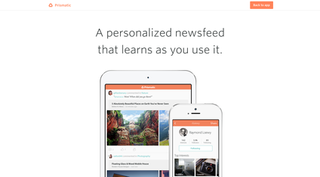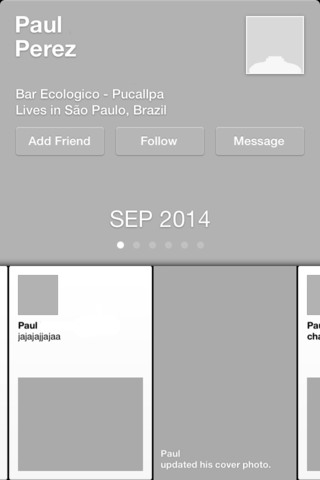
Google Reader is a discontinued RSS/Atom feed aggregator operated by Google. It was created in early 2005 by Google engineer Chris Wetherell and launched on October 7, 2005, through Google Labs. Google Reader grew in popularity to support a number of programs which used it as a platform for serving news and information to users. Google shut down Google Reader on July 1, 2013, citing declining use.
A mobile operating system is an operating system used for smartphones, tablets, smartwatches, smartglasses, or other non-laptop personal mobile computing devices. While computers such as typical/mobile laptops are "mobile", the operating systems used on them are usually not considered mobile, as they were originally designed for desktop computers that historically did not have or need specific mobile features. This "fine line" distinguishing mobile and other forms has become blurred in recent years, due to the fact that newer devices have become smaller and more mobile, unlike the hardware of the past. Key notabilities blurring this line are the introduction of tablet computers, light laptops, and the hybridization of the two in 2-in-1 PCs.
Amazon Kindle is a series of e-readers designed and marketed by Amazon. Amazon Kindle devices enable users to browse, buy, download, and read e-books, newspapers, magazines, Audible audiobooks, and other digital media via wireless networking to the Kindle Store. The hardware platform, which Amazon subsidiary Lab126 developed, began as a single device in 2007. Currently, it comprises a range of devices, including e-readers with E Ink electronic paper displays and Kindle applications on all major computing platforms. All Kindle devices integrate with Windows and macOS file systems and Kindle Store content and, as of March 2018, the store had over six million e-books available in the United States.

iOS is a mobile operating system developed by Apple exclusively for its devices. It was unveiled in January 2007 for the first-generation iPhone, which launched in June 2007. Major versions of iOS are released annually; the current stable version, iOS 18, was released to the public on September 16, 2024.

Songza was a free music streaming and recommendation service for Internet users in the United States and Canada.
Issuu, Inc. is a Danish-founded American electronic publishing platform based in Palo Alto, California, United States. The company's software converts PDFs into customizable digital publications that can be shared via links or embedded into websites.

OpenFeint was a social platform for mobile games for devices running on Android or iOS. It was developed by Aurora Feint, a company named after a video game by the same developers. The platform consisted of an SDK for use by games, allowing its various social networking features to be integrated into the game's functionality. OpenFeint was discontinued at the end of 2012.

The Samsung Wave S8500 is a smartphone developed and produced by Samsung Electronics. It is the first smartphone to run the Bada operating system developed by Samsung Electronics, which was commercially released on May 24, 2010. The Wave is a touchscreen phone powered by Samsung's "Hummingbird" CPU (S5PC110), which includes 1 GHz ARM Cortex-A8 CPU and a built-in PowerVR SGX 540 graphics engine. It also has a "Super AMOLED" screen and 720p high-definition video capture capabilities. Due to shortage of Super AMOLED screens, Samsung released a successor to the device called Wave II and ceased production of the original S8500 model.

LinkedIn Pulse was a news aggregation app originally developed for Android, iOS and HTML5 browsers, originally released in 2010. The app, in its original incarnation, was deprecated in 2015 and integrated into LinkedIn.

Bump was an iOS and Android mobile app that enabled smartphone users to transfer contact information, photos and files between devices. In 2011, it was #8 on Apple's list of all-time most popular free iPhone apps, and by February 2013 it had been downloaded 125 million times. Its developer, Bump Technologies, shut down the service and discontinued the app on January 31, 2014, after being acquired by Google for Google Photos and Android Camera.
Flipboard is a news aggregator and social network aggregation company based in Palo Alto, California, with offices in New York, Vancouver, and Beijing. Its software, also known as Flipboard, was first released in July 2010. It aggregates content from social media, news feeds, photo sharing sites, and other websites, presents it in magazine format, and allows users to "flip" through the articles, images, and videos being shared. Readers can also save stories into Flipboard magazines. As of March 2016 the company claims there have been 28 million magazines created by users on Flipboard. The service can be accessed via web browser, or by a Flipboard application for Microsoft Windows and macOS, and via mobile apps for iOS and Android. The client software is available at no charge and is localized in 21 languages.
Pearltrees is a visual and collaborative curation tool that allows users to organize, explore and share any URL they find online as well as to upload personal photos, files and notes. The product features a visual interface that allows users to drag and organize collected URLs, and other digital objects that themselves can be further organized into collections and sub-collections,(URLs). Users of the product can also engage in social/collaborative curation using a feature called Pearltrees Teams.
A mobile application or app is a computer program or software application designed to run on a mobile device such as a phone, tablet, or watch. Mobile applications often stand in contrast to desktop applications which are designed to run on desktop computers, and web applications which run in mobile web browsers rather than directly on the mobile device.

Prismatic was a social news curation and discovery application for various Web browsers and mobile devices running iOS. It combined machine learning, user experience design, and interaction design to create a new way to discover, consume, and share media. Prismatic software used social network aggregation and machine learning algorithms to filter the content that aligns with the interests of a specific user. Prismatic integrated with Facebook, Twitter, and Pocket to gather information about user's interests and suggest the most relevant stories to read.

News360 was a personalized news aggregation app for smartphones, tablets and the web. It attempted to learn a user's interests by analyzing their interaction with news stories on the app and using semantic analysis and natural language processing to create an Interest Graph and construct a unique feed of relevant content for each user. The app claimed an audience of more than 4 million users.

Alien Blue, stylized as AlienBlue, was an iOS application for browsing Reddit developed by Jason "Jase" Morrissey. It was available for the iPhone, the iPod Touch, and had a special optimised "HD" version for the iPad.

Facebook Paper was a standalone mobile app created by Facebook, only for iOS, that intended to serve as a phone-based equivalent of a newspaper or magazine. The app was announced by Facebook on January 30, 2014, and released for iOS on February 3, 2014. The iPhone app appeared in the iOS App Store as "Paper – stories from Facebook"; there was no iPad version. Facebook shut Paper down on July 29, 2016.
Azumio is a mobile health company that specializes in biometric mobile technology. Founded in 2011, Azumio develops Apple iOS and Android health apps and services. Azumio has released 24 apps on iOS, 5 apps on Android, and 3 apps on Windows Phone. The company is headquartered in Palo Alto, California.
The following article is about Adobe Acrobat's version history.

Beme was a mobile application created by Matt Hackett and Casey Neistat, a vlogger and short film maker on YouTube, and developed by Beme Inc. Beme was removed from the iOS App Store and Google Play Store on January 31, 2017.












